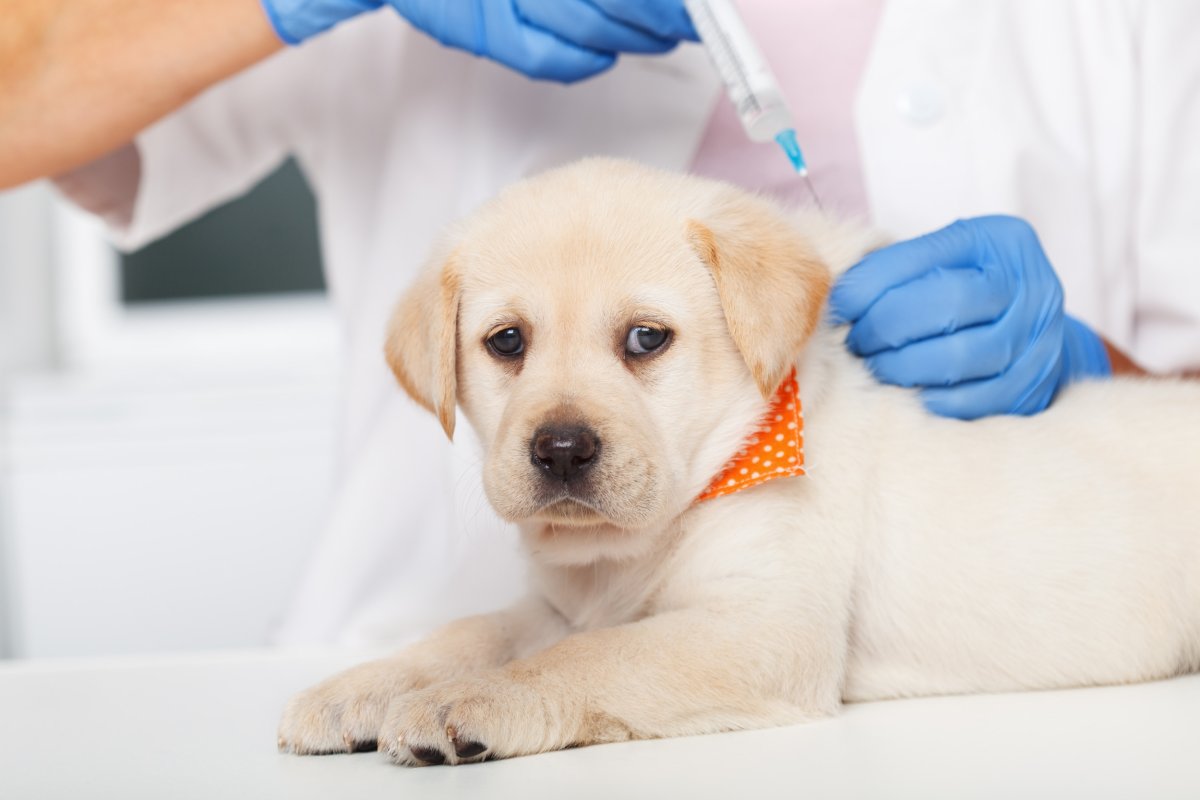Dog owners across the country are becoming suspicious about vaccinating their furry friends, a new study has found.
Nearly 40 percent of dog owners believe that canine vaccines are unsafe, with 37 percent believing that the vaccines could cause their dogs to develop autism, the study, published in the journal Vaccine, reveals.
The study's "nationally representative survey" of 2,200 adults in the U.S. also found that 22 percent of dog owners believe that vaccines are ineffective, and 30 percent consider them medically unnecessary.

"We were shocked to uncover just how prevalent canine vaccine hesitancy is," study lead author Matt Motta, an assistant professor of health law, policy and management at Boston University School of Public Health (BUSPH), told Ars Technica. "To see that so many dog owners misapply concerns about a human diagnosis to their pets was, in my view, pretty surprising,"
The idea that vaccines cause autism, in humans or animals, has been thoroughly debunked, and is considered a conspiracy theory by the scientific and medical community.
The idea first arose in 1998 when a paper was published in the Lancet journal suggesting that the MMR (measles-mumps-rubella) vaccine could cause autism in children, based on testing of only 12 children. This paper was later retracted and labeled a "fraud" by the BMJ (formerly the British Medical Journal), and the author, Andrew Wakefield, had his U.K. medical license taken away. Several follow-up studies in the decades since have found no evidence to support the initial findings whatsoever.
Despite the efforts of medical professionals to set the record straight, the idea that vaccines may cause autism or other medical conditions has been hard to extinguish. This anti-vaccine rhetoric has been exacerbated by the COVID-19 pandemic and further conspiracy theories surrounding the COVID-19 vaccines, and has led to a "spillover" effect of vaccine sentiments into pet vaccinations, with many of the human vaccine-skeptics also becoming pet vaccine-skeptics.

"The vaccine spillover effects that we document in our research underscore the importance of restoring trust in human vaccine safety and efficacy," Motta said in a statement.
Dogs cannot have autism, as it is a human condition: while they have been thought to get an autism-like disorder known as canine dysfunctional behavior (CDB), this is not considered an official diagnosis, and this too has no links to any vaccines, especially those generally given to dogs, including the rabies vaccine.
In the years after the fraudulent autism paper, MMR vaccination rates dropped sharply, leading to spiking numbers of the three diseases. Now, the hesitancy towards pet vaccinations is feared to lead to an increase in rabies.
Rabies is a viral infection that is usually transmitted via bites from an infected animal. Untreated, it has a death rate of nearly 100 percent, with 59,000 people dying from rabies transmitted to humans from dog bites across the globe each year. Human symptoms include anxiety, confusion, partial paralysis, hallucinations and a fear of water.

"With any drug, treatment, or vaccine, there is always a risk of adverse effects, but the risk with the rabies vaccine is quite low—especially when compared to the risk of rabies infection, which is almost 100 percent lethal," study co-author Gabriella Motta said in the statement.
Increased rabies cases would not only pose huge threats to pets but also to humans working with the animals, who may be bitten. A 70 percent dog vaccination rate is required to prevent rabies outbreaks among humans, according to the World Health Organization: there are fears that this anti-vaccine rhetoric may cause vaccination rates to fall below this.
"If non-vaccination were to become more common, our pets, vets, and even our friends and family risk coming into contact with vaccine-preventable diseases," Motta said in the statement.
Do you have an animal or nature story to share with Newsweek? Do you have a question about vaccines? Let us know via nature@newsweek.com.
Uncommon Knowledge
Newsweek is committed to challenging conventional wisdom and finding connections in the search for common ground.
Newsweek is committed to challenging conventional wisdom and finding connections in the search for common ground.
About the writer
Jess Thomson is a Newsweek Science Reporter based in London UK. Her focus is reporting on science, technology and healthcare. ... Read more
To read how Newsweek uses AI as a newsroom tool, Click here.






